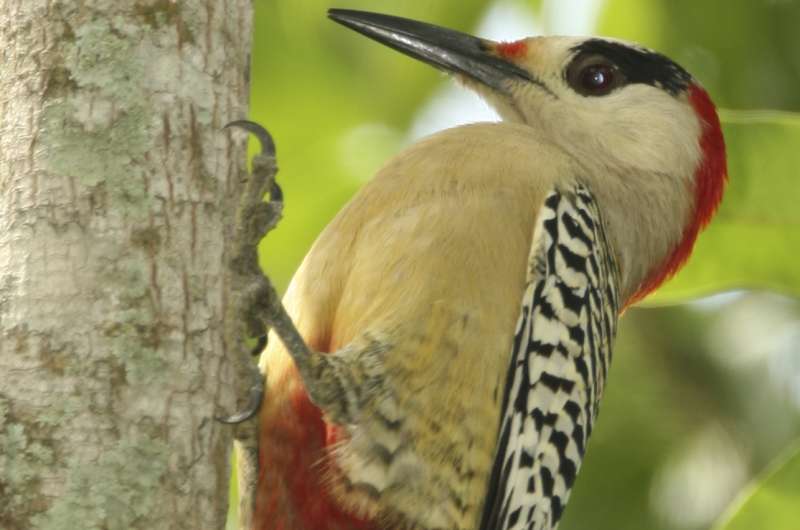Why birds matter: New book shows the many ways birds keep ecosystems healthy

University of Utah ornithologist and biology department professor Cagan Sekercioglu presents a new book, "Why Birds Matter," this week at the IUCN World Conservation Congress in Honolulu. Held every four years, this is the world's largest conservation event. Over 8300 delegates from 184 countries gathered for the meeting where President Obama made an appearance on Monday. Sekercioglu represents his Turkish environmental organization KuzeyDoga that was elected an IUCN Member this year with the support of National Geographic Society and Wildlife Conservation Society.
"Why Birds Matter" highlights the many essential services birds provide to ecosystems and the consequences to soil, plants and animals if bird species continue to disappear. The book is co-edited by Sekercioglu, Daniel G. Wenny of the San Francisco Bay Bird Observatory and Christopher J. Whelan of the University of Illinois at Chicago.
The diversity of birds' diets offers a window into the many ways they benefit an ecosystem. Birds that eat fruit, or frugivores, help disperse seeds far away from the parent tree and away from seed predators. Birds that drink nectar pollinate flowers, helping to spread the flowers' genetic material. Moving up the food chain, birds that eat insects, rodents or fish help control those populations, preventing them from overrunning ecosystems. Scavengers, such as vultures, act as a clean-up crew, consuming carcasses. Birds' droppings also help redistribute nutrients throughout the environment.
Birds confer economic benefits as well, including natural pest control. In the book's introduction, the editors recount presenting results of a study documenting birds' pest control benefits to an audience in rural Illinois. Amazed that bird predation had been shown to increase apple yield by 66 percent, two farmers asked "Why isn't this information public?" "Why Birds Matter" is an effort to answer that question and bring birds' critical ecosystem services into the public consciousness.

Tied to the economic and ecologic benefits of birds are the consequences of losing bird species. Without frugivores, seeds remains close to their trees. Without raptors, rodents consume ecosystem resources. Without scavengers, other opportunistic species consume carrion and possibly spread disease. Sekercioglu and his co-editors argue that birds' presence enriches our environments and our lives, while their absence could destabilize nature's carefully crafted balance.
More information: "Why Birds Matter" is available at The University of Chicago Press and at Amazon.com.
Provided by University of Utah



















